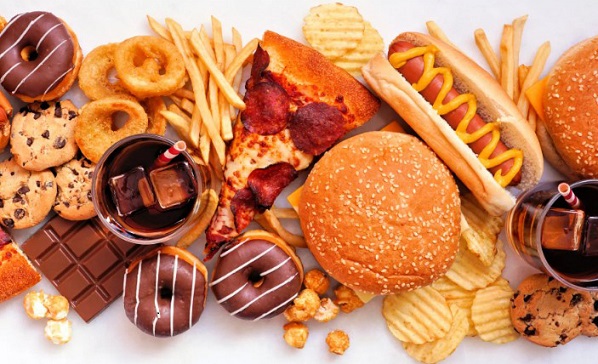Nikhil Prasad Fact checked by:Thailand Hotel News Team Nov 07, 2025 2 months, 4 weeks, 1 day, 16 hours, 18 minutes ago
Medical News:
Scientists Uncover How Modern Diets Reshape Brain Health
A sweeping international study has found that diets high in ultra-processed foods—like packaged snacks, soft drinks, and processed meats—are associated with physical changes in the brain. Researchers from the University of Helsinki (Finland), University of São Paulo (Brazil), and University of Bonn (Germany) analyzed brain scans from nearly 30,000 adults and discovered worrying differences in regions responsible for hunger, reward, and impulse control.
 Ultra-Processed Foods Could Be Quietly Damaging the Human Brain
Ultra-Processed Foods Could Be Quietly Damaging the Human Brain
According to this
Medical News report, people who consumed the most ultra-processed foods showed visible brain alterations that may make them more prone to overeating and addiction-like eating behaviors. Scientists believe these structural changes could reinforce cravings and lead to a self-perpetuating cycle of unhealthy eating.
What Makes Ultra-Processed Foods So Harmful
Ultra-processed foods (UPFs) are not just convenient—they’re chemically engineered. They contain emulsifiers, flavor enhancers, preservatives, and artificial sweeteners that rarely appear in home cooking. These additives are designed to enhance texture and flavor, but they also seem to interfere with how the brain regulates appetite. Researchers observed that UPF consumption was linked to abnormalities in brain regions such as the hypothalamus, nucleus accumbens, and amygdala—the same areas that influence motivation, pleasure, and hunger.
Lead researcher Arsène Kanyamibwa from the University of Helsinki explained that these effects cannot be fully blamed on obesity or inflammation. Instead, certain additives and the altered composition of UPFs themselves may trigger cellular stress and inflammation directly within brain tissue.
Inflammation and the Breakdown of Appetite Control
Participants who ate more ultra-processed foods had higher blood levels of inflammation markers such as C-reactive protein and triglycerides, and lower levels of protective HDL cholesterol. MRI scans revealed increased cellular density in the hypothalamus—an early sign of brain inflammation—and degenerative patterns in reward-related areas like the nucleus accumbens. These brain changes may weaken the body’s ability to signal fullness, causing individuals to keep eating despite not being hungry.
Researchers believe that once this brain circuitry is disrupted, the desire for highly processed foods only intensifies, trapping people in a continuous cycle of craving and consumption. Even when factors such as exercise, smoking, or calorie intake were accounted for, the link between UPF consumption and brain changes remained strong—indicating that damage can occur independently of weight gain.
A Growing Public Health Concern
Experts warn that the findings have broad implications for global nutrition polic
y. Limiting ultra-processed food intake and improving manufacturing standards could help protect brain and metabolic health. The researchers suggest shifting toward diets rich in fresh vegetables, whole grains, and natural fats, such as those found in the Mediterranean and DASH diets.
The study findings were published in the peer reviewed journal Nature Communications.
https://www.nature.com/articles/s44324-025-00056-3
The study findings underscore that ultra-processed foods may not just harm the body—they might also be subtly reshaping the human brain. The long-term concern is that these changes could fuel global epidemics of obesity, mood disorders, and compulsive eating tied to modern diets.
For the latest on the dangers of ultra-processed food, keep on logging to Thailand
Medical News.
Read Also:
https://www.thailandmedical.news/articles/diets-and-nutrition
